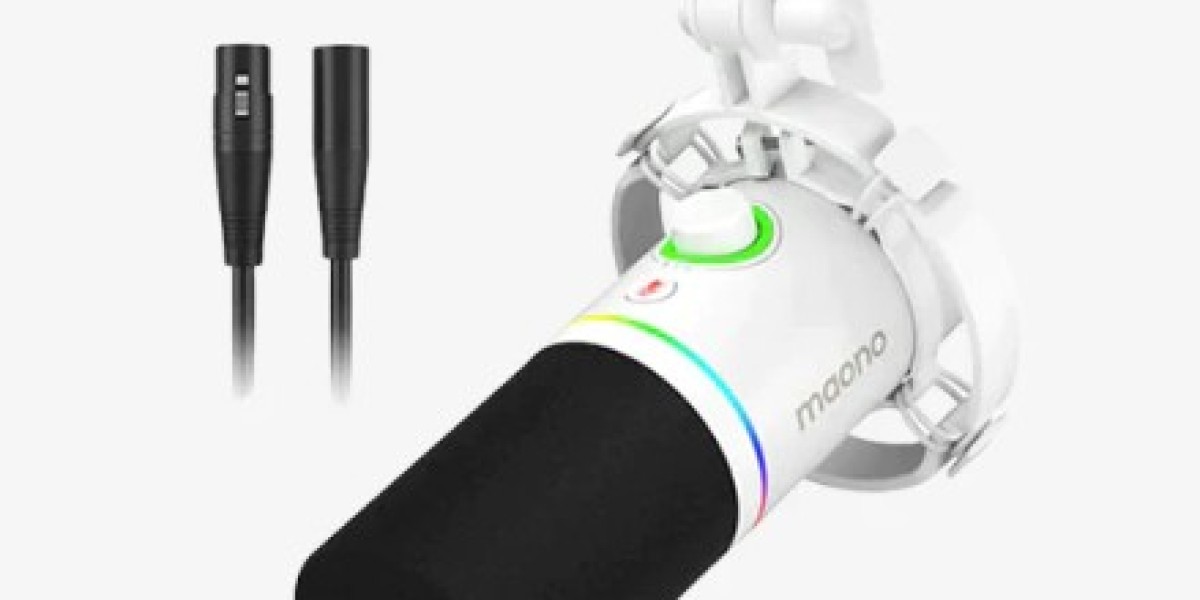Dynamic microphones are a ubiquitous and essential tool in the world of audio recording and live sound reinforcement. Known for their durability and versatility, these microphones are favored by musicians, broadcasters, and audio engineers alike. In this comprehensive guide, we'll delve into the world of dynamic microphones, exploring how they work, their applications, and the top models available today.
Understanding Dynamic Microphones:
1. How Dynamic Microphones Work:
dynamic microphone operate on electromagnetic induction. When sound waves hit the microphone's diaphragm, it moves a coil of wire within a magnetic field, generating an electrical current that mirrors the sound wave.
2. Durability and Reliability:
- Dynamic microphones are robust and can handle high sound pressure levels without distortion, making them ideal for stage performances and capturing loud sound sources.
3. No Need for External Power:
- Unlike condenser microphones, dynamic microphones do not require external power sources like phantom power. They can be connected directly to a mixer or amplifier.
Applications of Dynamic Microphones:
1. Live Sound Reinforcement:
- Dynamic microphones are the go-to choice for miking live musical performances, including vocals, drums, and guitar amplifiers, due to their ruggedness and resistance to feedback.
2. Studio Recording:
- While condenser microphones are common in studios, dynamic microphones find use in recording instruments like electric guitars, snare drums, and bass amplifiers, providing a punchy sound.
3. Broadcasting and Podcasting:
- Many radio hosts and podcasters rely on dynamic microphones for their durability and ability to reject ambient noise.
4. Instrumental and Vocal Amplification:
- Dynamic mics are often used to amplify musical instruments, such as harmonicas, brass instruments, and percussion.
Top Dynamic Microphones on the Market:
1. Shure SM58:
- Renowned for its durability and clear vocal reproduction, the Shure SM58 is a staple on stages worldwide.
2. Sennheiser MD 421 II:
- This microphone is prized for its versatility, excelling at capturing vocals, drums, and guitar amps.
3. Electro-Voice RE20:
- The RE20 is a broadcast standard, known for its warm and smooth sound quality.
4. AKG D112:
- A favorite for kick drum miking, the AKG D112 provides punchy low-end response.
Tips for Using Dynamic Microphones:
1. Close-Miking Technique:
- Keep the microphone close to the sound source for better isolation and reduced ambient noise pickup.
2. Windscreen and Pop Filter:
- Attach a windscreen or pop filter to minimize plosive sounds and protect the microphone from moisture.
3. Proper Handling:
- Dynamic microphones are rugged, but gentle handling ensures longevity. Avoid dropping or subjecting them to extreme conditions.
Conclusion:
Dynamic microphones are an integral part of the audio industry, offering reliability and versatility in a variety of applications. Whether you're performing on stage, recording in the studio, or broadcasting your voice to the world, a quality dynamic microphone is an essential tool for capturing sound accurately and effectively. With an array of options available, you can find the perfect dynamic microphone to suit your needs and elevate your audio endeavors.
For more info. visit us:








